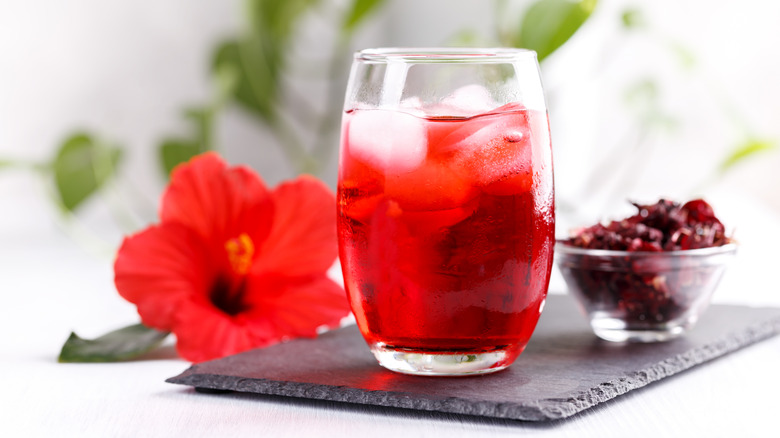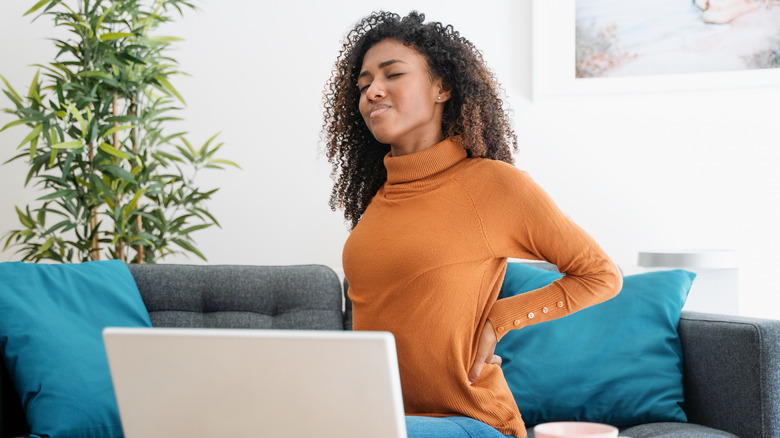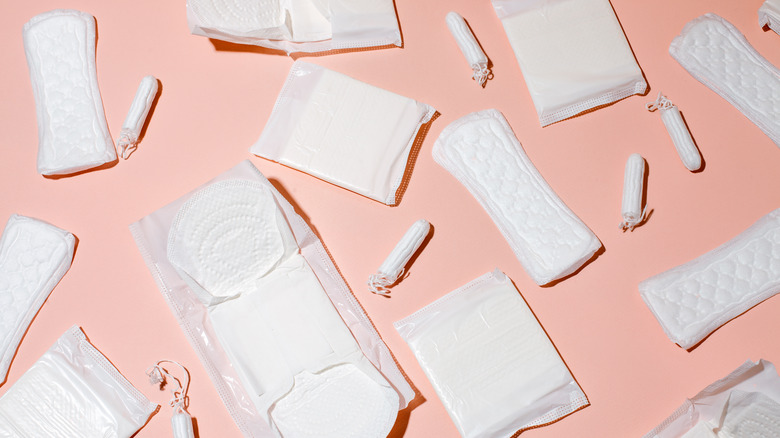Does Drinking Cranberry Juice Help When You're On Your Period?
Cranberry juice has a longstanding reputation of being able to prevent (but not treat) urinary tract infections (UTIs). WebMD notes that the beverage can stop the bacteria growth that causes UTIs after just 8 hours. According to a study by the American Chemical Society in Boston, this is because the active compounds from cranberry juice can reach the urinary tract and get right to work in fighting off bacteria.
Because of how cranberry juice can be helpful for the urinary tract, it makes sense people would think it could also help with pH balance, menstrual cramps, and other matters of vaginal health. While, theoretically, concentrated cranberry juice (not that sugary stuff) could help with pH balance (a notion that Black Health Matters and Virtuosa Gyn agree with), there is no evidence that it can relieve any symptoms caused by menstruation, according to ZocDoc. Although cranberry juice won't do much for menstrual woes, several natural remedies can help alleviate those issues.
Natural remedies for menstrual cramps
In medical terms, menstrual cramps are called dysmenorrhea and refer to the pain you feel in your stomach, especially the lower abdomen, right before or during your period (per Mayo Clinic). Endometriosis and uterine fibroids can intensify menstrual cramps and it's not uncommon for the pain to travel to your lower back and thighs.
A heating pad or hot towel can provide much comfort for menstrual cramps, according to a small meta-analysis by Scientific Reports. Healthline also recommends massaging your abdomen with essential oils like lavender, cinnamon, or oil blends. To avoid side effects, try applying them first to a small area of skin and waiting a day to make sure you don't experience irritation. And to make sure they really work, be sure to use pure essential oils. Eating healthy and working out are also good natural remedies for cramping. A study by Electronic Physician showed that these two factors along with minimizing stress played a significant role in reduced period pain.
Natural remedies for heavy periods
Medical News Today defines heavy periods as excessive bleeding, or menstruation that lasts longer than 7 days. Medically known as menorrhagia, symptoms of heavy periods can include quarter-sized blood clots (or larger), needing to change pads or tampons hourly, fatigue, anemia, and intense cramping.
Fortunately, eating more iron-rich foods and vitamin C throughout the month can help alleviate heavy periods or at least reduce their effects, according to Health Partners. Meals consisting of meat, seafood, beans, nuts, seeds, leafy green vegetables, oranges, bell peppers, and broccoli are recommended. These foods can help your body absorb or replenish iron, which will help prevent iron deficiency anemia. Healthline notes that simply staying hydrated can help, as heavy periods may lead to low blood volume. Drinking an extra 4 to 6 cups of water, and perhaps adding electrolytes to balance out the additional fluid intake, can be beneficial.



